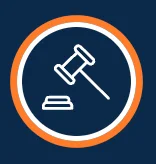If a claimant dies during a personal injury claim, there can still be a claim for compensation.
However, the type of claim and the procedure to pursue it will change. How it’s handled when the plaintiff dies during a personal injury claim depends on the status of the case and the cause of death.
Jordan Law Center discusses what happens when a claimant dies during a personal injury claim.
What Happens if the Plaintiff Dies During a Personal Injury Claim in South Carolina?
If the plaintiff dies during a personal injury claim in South Carolina, the case becomes a wrongful death case. Under S.C. Code § 15-3-90, the personal representative may commence a new action within one year. If the death is unrelated to the personal injury, the personal representative may petition the court to continue the case as a survival action.
Does a personal injury claim end if the plaintiff dies during the case in South Carolina?
If a plaintiff dies during a personal injury case, South Carolina Code § 15-5-90 says that the cause of action survives to the personal representative. The plaintiff’s representative may pursue the matter as a survival action or there may be a wrongful death action if appropriate.
If the death is related to a personal injury
If the death is related to a personal injury, two things happen. First, the claim on behalf of the deceased person may continue or begin anew as a survival action. Second, close family members now have a wrongful death claim. They may have a personal representative appointed to pursue the wrongful death claim.
There are multiple statutes and procedural laws that may apply.
S.C. Code § 15-3-90 – If an action is pending and the plaintiff dies, the personal representative may commence a new action within one year. It wouldn’t be fair for the family to have the claim barred by the statute of limitations simply because it was first pending as a personal injury matter. For § 15-3-90 to apply, the plaintiff must have started their injury action within the applicable statute of limitations.
S.C.R. Civ. P. 25 – If a party dies and a claim is not extinguished, a motion for substitution may be made. In other words, the personal injury claim may become a survival action, carried forward by the plaintiff’s representative. The plaintiff’s counsel must give notice of the death, and a personal representative must seek to substitute as a party within a reasonable time.
If the death is from unrelated causes
If a claimant dies from unrelated causes during a personal injury claim, the claim may continue as a survival action. In that case, there is no wrongful death claim because the defendant’s fault did not result in death. Instead, the survival action may claim for the plaintiff’s financial losses and non-economic damages before death.
The plaintiff’s representative must substitute as a party to continue the case (Rule 25 of the S.C. Rules of Civil Procedure). The federal rule requires the motion for substitution to be made within 90 days of death while the South Carolina rule allows for a reasonable amount of time.
If the plaintiff has not yet filed a case
When a plaintiff has not yet started their personal injury claim, there is no case to substitute or restart. In that situation, the case begins as a wrongful death and survival action. Interested parties should seek to have a personal representative appointed and commence a case.
S.C. Code § 15-51-10 applies. When the cause of death is a wrongful act and the case would have been a personal injury claim if death had not ensued, the defendant is liable in an action for damages notwithstanding the death.
Tolling of the statute of limitations
S.C. Code § 62-3-109 tolls, or suspends, a statute of limitations belonging to a decedent, if the statute of limitations has not yet run as of the date of death. The period of limitation may be tolled for eight months and then, it resumes. Tolling allows for the appointment of a personal representative to proceed.
But see Hill v. Labs, C/A No. 6:19-cv-01011-DCC (D.S.C. Aug. 19, 2020). In Hill, the plaintiff made a claim based on a defective medical device. The plaintiff did not file a wrongful death claim until three years and seven months later. The cause of action accrued on the victim’s death, rendering S.C. Code § 62-3-109 inapplicable. Tolling of the statute of limitations did not apply because the cause of action accrued as of the date of death.
If a claim has already been tried for final judgment
If a personal injury claim has already been tried for a judgment or settlement, South Carolina wrongful death laws do not apply. See S.C. Code § 15-51-60, stating that wrongful death laws do not apply to a case where the injured person has brought an action for injury that has proceeded to trial and final judgment.
If the defendant dies
If the defendant dies while a personal injury claim is pending, the case survives against the personal representative (S.C. Code § 15-51-10). Counsel for the defendant must notify the other parties as soon as possible.
Laws for death during a personal injury claim vary by state
Personal injury claims largely fall under state law. The laws vary, including in how things are handled when a claimant dies during a personal injury claim.
When a Claimant Dies During Proceedings
When a personal injury claimant dies during proceedings, you should inform the attorney handling the case. It’s important to remember that a case can continue, or begin if it hasn’t already started. However, there are still deadlines that apply. Don’t wait to contact an attorney to begin the next steps.
Contact Jordan Law Center
If you have lost a loved one, we are truly sorry. Jordan Law Center is a team of lawyers and experienced litigators who understand the necessary steps if a claimant dies during a personal injury claim. Call or message us now for immediate legal help.







“There is not enough GREAT THINGS I could say about Jordan Law Center.”